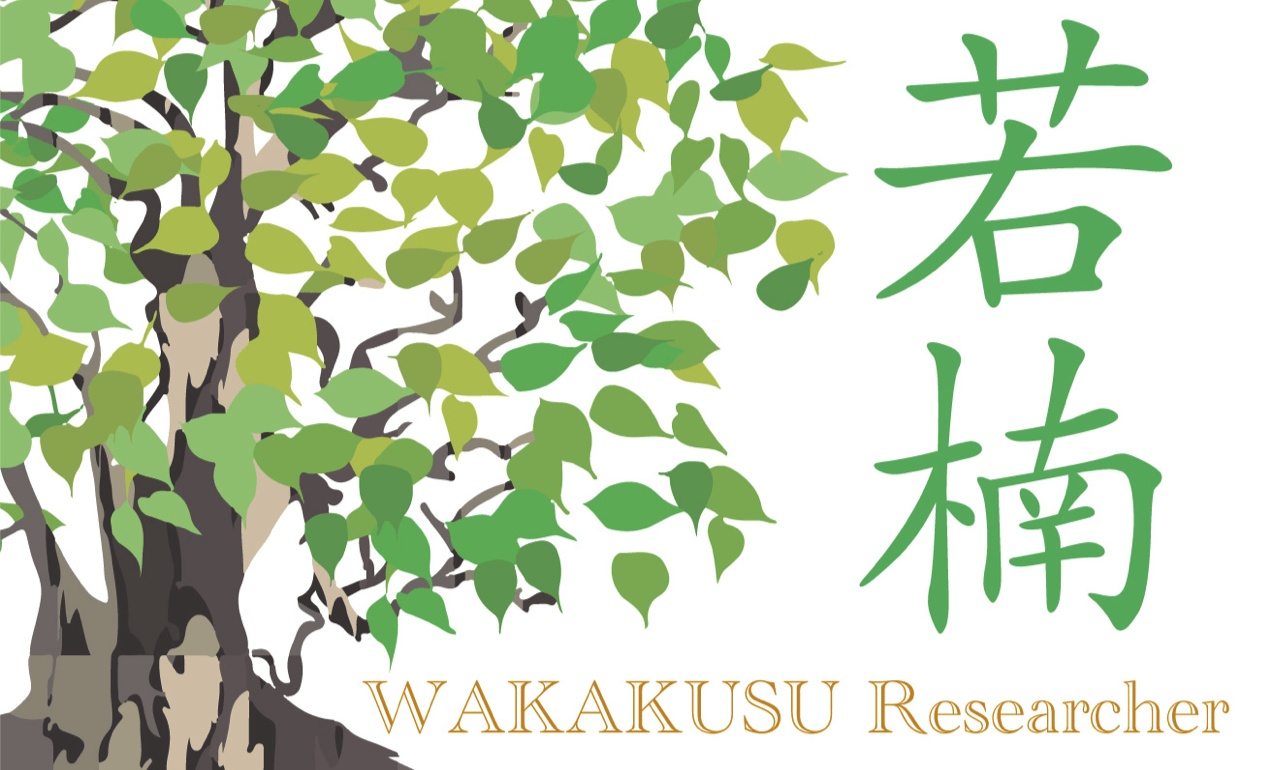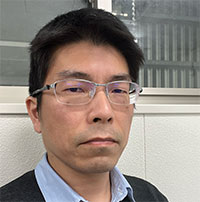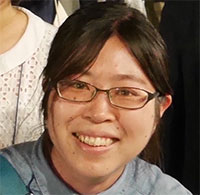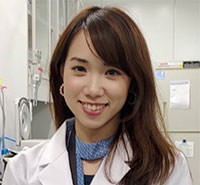WAKAKUSU Researchers

About WAKAKUSU Program
We started a WAKAKUSU project in April 2024. Our institute will work together to support young researchers to become principal investigators.
<Main Content>
Double mentoring by professors
Instruction on laboratory management
Assistance in preparing applications to obtain research funding
Support for exchanges with overseas researchers
Researchers

MORISHIMA Tatsuya / 森嶋 達也, M.D., Ph.D
Research Theme: Epitranscriptome in hematopoiesis
Research Interests:
"Epitranscriptome" includes all the biochemical modifications of the RNA that do not involve a change in the ribonucleotide sequence. RNA modification has come to public attention since Novel Prize in Physiology or Mediciene was awarded to the RNA modification work that enabled the development of effective mRNA vaccines against COVID-19 in 2023.
Transfer RNA (tRNA) is a type of RNA which brings amino acids to rebosomes where proteins are synthesized. It has been known for decades that tRNA is subject to chemical modifications which stabilize tRNA structure and promote protein translation through stabilizing decoding process. However, the physiological significance of tRNA modifications still remains unclear in many organs, including hematopoietic system.
We are working on the role of the mitochondrial tRNA taurine modification enzyme, Mitochondrial tRNA translation optimization 1 (Mto1), which stabilizes mitochondrial DNA-coded protein translation in hematopoiesis. We found that hematopoietic-specific Mto1 conditional knockout (cKO) mice were lethal in the later stage of the fetal life due to severe anemia. Mechanistically, mitochondrial oxidative phosphorylation complexes were severely impaired in the Mto1 cKO fetal liver and this was followed by cytoplasmic iron accumulation. Overloaded cytoplasmic iron promoted heme biosynthesis, which induced an unfolded protein response in Mto1 cKO erythroblasts (Morishima et al. Sci Adv 2025). We are currently working on the role of Mto1 in adult hematopoiesis using inducible knockout system.
Selected Publications:
1. Mitochondrial translation regulates terminal erythroid differentiation by maintaining iron homeostasis
Morishima T#, Fakruddin M#, Masuda T, Wang Y, Schoonenberg VAC, Butter F, Arima Y, Akaike T, Tomizawa K, Wei FY, Suda T, Takizawa H (#equally contribution) Sci Adv. 2025 Feb 21;11(8):eadu3011.
2. Phospholipid metabolic adaptation promotes survival of IDH2 mutant acute myeloid leukemia cells.
Morishima T*, Takahashi K, Chin DWL, Wang Y, Tokunaga K, Arima Y, Matsuoka M, Suda T, Takizawa H*. (*corresponding authors) Cancer Sci. 2024 Jan;115(1):197-210.
3. LMO2 activation by deacetylation is indispensable for hematopoiesis and T-ALL leukemogenesis.
Morishima T*, Krahl AC, Nasri M, Xu Y, Aghaallaei N, Findik B, Klimiankou M, Ritter M, Hartmann MD, Gloeckner CJ, Stefanczyk S, Lindner C, Oswald B, Bernhard R, Hähnel K, Hermanutz-Klein U, Ebinger M, Handgretinger R, Casadei N, Welte K, Andre M, Müller P, Bajoghli B, Skokowa J*. (*corresponding authors) Blood. 2019 Oct 3;134(14):1159-1175.
Message:
Following the study in the role of Mto1 in normal hematopoiesis, I would like to study its role in hematopoietic disorders and try to develop a novel therapy through controlling the mitochondrial tRNA modifications. In the future, I would llike to extend my research to the other type of RNA modifications.
Epitranscriptome has a potential to be a "next generation" therapeutic target in hematopietic diseases follwing genetic and epigenetic disorders. I would like to contribute to develop this new research field through my research.
As a pediatric physician-scientist, the ultimate goal of my research is to contribute to reveal the pathophysiology of intractable diseases and develop novel therapy for them. Especially I am interested in the "rare" hematopoietic diseases in children such as congenital bone marrow failure syndromes.

ASAI Rieko / 淺井 理恵子, Ph.D
Research Theme: Cardiac Morphogenesis
Research Interests:
My research goal is to understand how our cardiovascular system initiates and is patterned. The heart is the first organ to form during embryogenesis, and its circulatory function is essential throughout entire life. While congenital heart defects affect nearly 1% of births per year, the cell biological mechanisms underlying heart development (so-called 'cardiac morphogenesis') are not well understood.
The cardiogenic mesoderm, composed of the first and second heart fields, is the earliest cardiac progenitor cells and the main source of myocardium. Interestingly, these heart fields bilaterally form along the midline, and then, the heart tube looping and chamber formation happen with the left-right (LR) asymmetry. To approach unrevealed mechanisms behind these bilateral-lateral patterning in early cardiac morphogenesis, I focus on the cellular processes, such as cell migration, proliferation, and polarity. The centrosome is the microtubule organizing center and involved in these processes. By using high-resolution imaging combined with molecular and genetic approaches and quantitative/flow dynamics analyses, I examine the role of the centrosome behaviors in the cardiac morphogenesis.
These research interests would impact the comprehensive understanding of dynamic processes through development, maintenance and failure in complex life systems.
Selected Publications:
1. Coupling and uncoupling of midline morphogenesis and cell flow in amniote gastrulation
Asai R, Prakash N.V, Sinha S, Prakash M, Mikawa T. eLife (in Press)
2. Avians as a Model System of Vascular Development.
Asai R, Bressan M, and Mikawa T. Methods Mol Biol. 2206, 103-127, (2021).
3. Amniogenic somatopleure: a novel origin of multiple cell lineages contributing to the cardiovascular system." Asai R, Haneda Y, Seya D, Arima Y, Fukuda K., Kurihara Y, Miyagawa-Tomita S, Kurihara H. Sci Rep. 7(1): 8955, (2017).
Message:
I really appreciate to give me this opportunity to work as a Jr. PI. In research, how cell biological phenomena organize the collective cell behaviors in the cardiac progenitor cells to form the complex heart structure remains a mystery. I believe the research goal would be poised to the systematic understanding of development relevant to biomedical research -be it at the level of the organism, tissue, or cell- by putting studies together in a way. In education, I would like to cultivate a broad view of science together with students and future scientists.

LIU Norika / 劉孟佳, Ph.D
Research Theme: Macrophages Biology
Research Interests:
Macrophages are the most plastic and functionally diverse cells in the blood system and are found in all tissues. Although macrophages are central to the immune system that regulates tissue homeostasis, they have not received much attention because of their diversity and lack of integrated understanding. However, macrophages are actually an essential cell type in understanding tissue development, physiology, and pathophysiology. Tissue macrophages are often classified according to their inflammatory status and origin, but recent advances in bioinformatics technology have revealed that their roles are far more diverse than currently accepted.
Our laboratory focuses on the close relationship between tissue macrophages and blood vessels. Vascular cells are the major cell population of the heart, perhaps more so than cardiomyocytes. Therefore, the interaction between macrophages and vascular cells may have a significant impact on cardiac development, physiology, and pathophysiology. Our recent studies have discovered a novel origin for cardiac macrophages, which contribute exclusively to local morphogenesis. In addition, there are several evidences that tissue macrophages play a central role in vasculogenesis and ultimately organogenesis. We are now investigating the interactive role of macrophages and vasculatures at the cellular/molecular level using tools to ablate or induce macrophages in a tissue-specific manner. By combining top-notch bioinformatics and imaging techniques, we are making it possible to unveil macrophage biology in cardiac development and aging.
Selected Publication:
1. Liu et al, Nat Commun. 2023 (PMID: 37669937)
2. Nakano and Liu. Dev Cell. 2023 (PMID: 37348504)
3. Liu et al, Aging. 2023 (PMID: 37244285)
Message:
I received my degree from UCLA in 2018 and since then I have been conducting research on the development of the heart and blood vessels. The development of the heart and blood vessels involves not only genetic factors, but also environmental factors and many other factors that are intertwined to finally complete a form that is sufficient for normal vital activity. Even if only one element is missing, it would not be completed. In other words, the circulatory system, which is the essence of life, is the fruit of a miracle that can only be achieved when countless factors play their respective roles. I will conduct research to elucidate the phenomenon of a small piece of such a miracle of life and contribute to the health of mankind. I am truly honored to be able to conduct research in the wonderful environment and with the wonderful colleagues at IRCMS.
